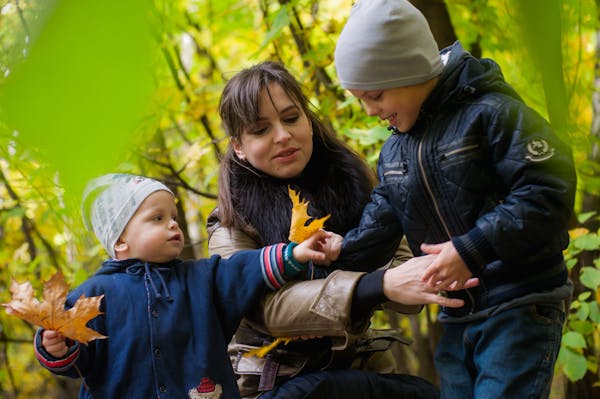Achieving the best outcomes for children with autism spectrum disorder (ASD) requires a multifaceted therapeutic approach that addresses various developmental needs. Key components of this approach include Applied Behavior Analysis (ABA) therapy, potty training, and social skills groups. By integrating these evidence-based interventions, therapists can effectively target crucial areas of development such as independence, social competence, and emotional regulation. ABA potty training provides structured, individualized support for essential toileting skills, while social skills groups offer valuable opportunities for children to practice social interactions, communication, and emotional expression in a supportive peer environment. When used together, these strategies can significantly enhance a child’s quality of life and contribute to their long-term success.
Understanding ABA Therapy Potty Training
ABA therapy potty training is based on the principles of Applied Behavior Analysis (ABA), which emphasizes positive reinforcement and systematic teaching methods. This approach involves breaking down complex tasks like toileting routines into manageable steps that children with ASD can learn and practice effectively. Therapists use techniques such as prompting, shaping behaviors, and providing consistent reinforcement to encourage and maintain successful toileting habits.
Benefits of ABA Therapy Potty Training
The primary goal of ABA therapy potty training is to foster independence in children with autism. By teaching toileting skills in a structured manner, therapists help children perform these tasks independently, boosting their sense of control over their bodies and daily routines. This increased independence not only supports physical well-being but also enhances self-confidence and self-esteem.
Children with autism may experience sensory sensitivities that impact daily activities, including toileting. ABA therapists adapt strategies to accommodate these sensitivities, creating a supportive environment that reduces sensory triggers and promotes comfort during bathroom routines. Techniques such as adjusting lighting, using preferred toileting tools, and incorporating sensory breaks help reduce anxiety and facilitate successful toileting experiences.
Exploring Social Skills Groups for Autism
Social skills groups for autism provide structured environments where children can learn and practice essential social skills. Led by trained professionals, these groups focus on enhancing communication abilities, social interactions, and emotional regulation through collaborative activities, role-playing, and guided discussions. Children with autism learn to navigate social situations, interpret social cues, and develop meaningful connections with peers.
Benefits of Social Skills Groups
Participating in social skills groups offers children with autism opportunities to interact with peers in a controlled setting. These interactions allow them to practice and generalize social skills such as initiating conversations, sharing, taking turns, and resolving conflicts. Over time, regular participation helps build confidence in social abilities and fosters positive peer relationships.
Social skills groups also play a crucial role in enhancing emotional understanding and regulation. Activities that promote empathy, perspective-taking, and emotional expression teach children to manage their own emotions while understanding others’ feelings. These skills are vital for forming meaningful relationships and navigating social dynamics effectively.
The Synergy Between ABA Therapy Potty Training and Social Skills Groups
Combining ABA therapy potty training with social skills groups offers a comprehensive approach to therapy that addresses both personal and social development. While ABA therapy focuses on teaching toileting skills, social skills groups provide opportunities for children to apply these skills in real-life social contexts. This integration enhances the generalization of learned behaviors and supports a well-rounded development of independence and social competence.
Case studies demonstrate the effectiveness of combining ABA potty training with social skills groups. Children who have undergone ABA therapy for toileting skills and participated in social skills groups show notable improvements in both areas. These children achieve greater independence in toileting and exhibit enhanced social skills, including improved communication, better peer interactions, and increased emotional regulation.
Challenges and Considerations
One challenge in therapy for children with autism is transferring skills learned in structured environments to real-life situations. While children may excel in therapy sessions, applying these skills in home, school, or community settings can be complex. Therapists and parents work together to develop strategies that promote the use of learned behaviors across various environments, ensuring consistency in skill development.
Parental involvement is crucial for therapy outcomes. Beyond attending sessions, parents play a key role in reinforcing skills learned in ABA therapy and social skills groups at home. They collaborate with therapists to establish consistent routines, provide positive reinforcement, and create supportive environments that facilitate skill generalization. Parental support also helps maintain access to beneficial therapies and resources.
Finding Social Skills Groups for Autism
Finding suitable social skills groups for autism involves researching local programs that match a child’s needs, preferences, and developmental goals. Parents can consult healthcare providers, therapists, and visit potential group settings to evaluate their suitability.
Virtual social skills groups have emerged as an alternative or supplement to in-person programs, offering flexibility and convenience, especially in areas with limited access to specialized services. Virtual groups provide opportunities for structured social interactions from home, although considerations like internet connectivity and technology use are important.
Conclusion
The integration of ABA therapy potty training and social skills groups represents a holistic approach to therapy for children with autism. Combining these targeted interventions supports both personal hygiene and social competence, facilitating significant progress toward independence, social integration, and improved quality of life. As research and practice evolve, understanding and leveraging the synergy between these therapies remain essential for promoting positive outcomes and supporting the overall development of children with autism.


